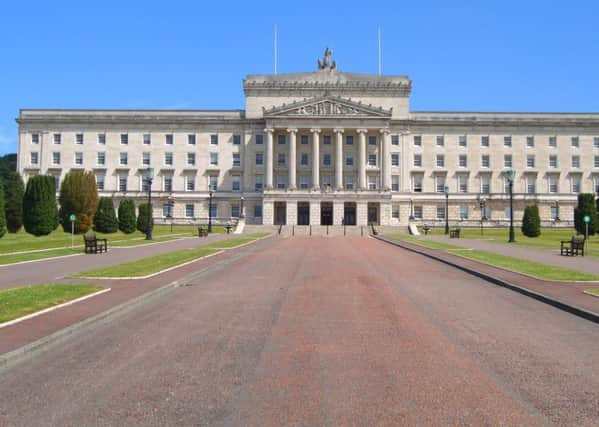Stormont: Economic sub-group was not recommended


In January last year the Stormont Executive announced that it had agreed to establish a ministerial sub group tasked with delivering a more balanced regional economy.
At a meeting of Derry City and Strabane District Council in December last year, newly installed SDLP MLA, Gerard Diver, questioned the seriousness of the group in tackling regional economic disparity. He evidenced this by stating that the group has only met twice since its inception a year ago.
Advertisement
Hide AdAdvertisement
Hide AdNow, a letter obtained under the Freedom of Information Act by blog site Beyond the Pillars reveals that the sub-group was set up despite advice from the Economic Advisory Group (EAG) that it would result “in an inefficient and sub-optional allocation of resources.”
The EAG is the body which advises the Stormont Finance Minister on economic policy.
And around 10 months prior to the announcement that the group was being set-up a letter from the Chair of the EAG, Kate Barker to then Finance Minister Arlene Foster, clearly indicates the advisory body was against the idea.
The letter dated March 6th, 2014 read: “Members recognised the desire for economic growth to be spread across Northern Ireland and the pressures which often come from individuals and lobby groups for economic activity to be specifically directed to certain areas. However, we were unconvinced that a specific sub problem has been properly identified and articulated. We would advise that, prior to any specific policy initiatives being promoted, there should be a detailed analysis and understanding of the particular issues at hand in any particular sub-region.”
Advertisement
Hide AdAdvertisement
Hide AdThe letter to Minister Foster was part of the EAG’s advice on what the priorities should be within the next Programme for Government at Stormont.
As a result, it becomes clear that the EAG thought that setting up special economic zones would not be of use.
The letter continues: “This is not dissimilar to other city regions within the UK; e.g. Manchester in the North West of England, in which a central hub acts as an economic driver for the whole of the local region.
“It is our view that this remains the best model for Northern Ireland and generic interventions at a sub regional level may well result in an inefficient and sub-optimal allocation of resources.
Advertisement
Hide AdAdvertisement
Hide Ad“Members strongly feel that the Executive should not seek to intervene in the location of business within a region.
“When viewed in a global context, a company choosing to invest within Northern Ireland will seek to locate in an area which is most advantageous to its needs.
“The most important of these is likely to be access to a sufficient number of highly skilled employees.
“It is generally the case that this is more likely in major centres of population, which have the added benefit of having appropriate transport links to enable individuals in outlying areas to travel to meet this need.
Advertisement
Hide AdAdvertisement
Hide Ad“In summary, we would suggest that promoting economic hubs within Northern ireland should not be considered a high priority at this time.”
Despite these recommendations the Ministerial Sub Group was announced last January.
Deputy First Minister Martin McGuinness said after the initial meeting: “The issue of regional economic disparities and the impact which past under-investment continues to have on areas like the north west needs to be a priority for the entire Executive and we have today agreed to establish a ministerial subgroup to explore how we can best redress that legacy.
“The initial focus of that group will be on the north west, which still suffers from the highest levels of unemployment here.”